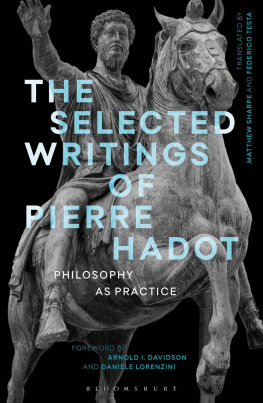CONTENTS
LETTER I
Introduction.--Anecdotes of Marguerite's Infancy.--Endeavours Used to Convert Her to the New Religion.--She Is Confirmed in Catholicism.--The Court on a Progress.--A Grand Festivity Suddenly Interrupted.--The Confusion in Consequence
LETTER II
Message from the Duc d'Anjou, Afterwards Henri III., to King Charles His Brother and the Queen-mother.--Her Fondness for Her Children.--Their Interview.--Anjou's Eloquent Harangue.--The Queen-mother's Character.--Discourse of the Duc d'Anjou with Marguerite.--She Discovers Her Own Importance.--Engages to Serve Her Brother Anjou.--Is in High Favour with the Queen-mother
LETTER III
Le Guast.--His Character.--Anjou Affects to Be Jealous of the Guises.--Dissuades the Queen-mother from Reposing Confidence in Marguerite.--She Loses the Favour of the Queen-mother and Falls Sick.--Anjou's Hypocrisy.--He Introduces De Guise into Marguerite's Sick Chamber.--Marguerite Demanded in Marriage by the King of Portugal.--Made Uneasy on That Account.--Contrives to Relieve Herself.--The Match with Portugal Broken off
LETTER IV
Death of the Queen of Navarre.--Marguerite's Marriage with Her Son, the King of Navarre, Afterwards Henri IV. of France.--The Preparations for That Solemnisation Described.--The Circumstances Which Led to the Massacre of the Huguenots on St. Bartholomew's Day
LETTER V
The Massacre of St. Bartholomew's Day
LETTER VI
Henri, Duc d'Anjou, Elected King of Poland, Leaves France.--Huguenot Plots to Withdraw the Duc d'Alenon and the King of Navarre from Court.--Discovered and Defeated by Marguerite's Vigilance.--She Draws Up an Eloquent Defence, Which Her Husband Delivers before a Committee from the Court of Parliament.--Alenon and Her Husband, under a Close Arrest, Regain Their Liberty by the Death of Charles IX
LETTER VII
Accession of Henri III.--A Journey to Lyons.--Marguerite's Faith in Supernatural Intelligence
LETTER VIII
What Happened at Lyons
LETTER IX
Fresh Intrigues.--Marriage of Henri III.--Bussi Arrives at Court and Narrowly Escapes Assassination
LETTER X
Bussi Is Sent from Court.--Marguerite's Husband Attacked with a Fit of Epilepsy.--Her Great Care of Him.--Torigni Dismissed from Marguerite's Service.--The King of Navarre and the Duc d'Alenon Secretly Leave the Court
LETTER XI
Queen Marguerite under Arrest.--Attempt on Torigni's Life.--Her Fortunate Deliverance
LETTER XII
The Peace of Sens betwixt Henri III. and the Huguenots
LETTER XIII
The League.--War Declared against the Huguenots.--Queen Marguerite Sets out for Spa
LETTER XIV
Description of Queen Marguerite's Equipage.--Her Journey to Lige Described.--She Enters with Success upon Her Mission.--Striking Instance of Maternal Duty and Affection in a Great Lady.--Disasters near the Close of the Journey
LETTER XV
The City of Lige Described.--Affecting Story of Mademoiselle de Tournon.--Fatal Effects of Suppressed Anguish of Mind
LETTER XVI
Queen Marguerite, on Her Return from Lige, Is In Danger of Being Made a Prisoner.--She Arrives, after Some Narrow Escapes, at La Fre
LETTER XVII
Good Effects of Queen Marguerite's Negotiations in Flanders.--She Obtains Leave to Go to the King of Navarre Her Husband, but Her Journey Is Delayed.--Court Intrigues and Plots.--The Duc d'Alenon Again Put under Arrest
LETTER XVIII
The Brothers Reconciled.--Alenon Restored to His Liberty
LETTER XIX
The Duc d'Alenon Makes His Escape from Court.--Queen Marguerite's Fidelity Put to a Severe Trial
LETTER XX
Queen Marguerite Permitted to Go to the King Her Husband.--Is Accompanied by the Queen-mother.--Marguerite Insulted by Her Husband's Secretary.--She Harbours Jealousy.--Her Attention to the King Her Husband during an Indisposition.--Their Reconciliation.--The War Breaks Out Afresh.--Affront Received from Marchal de Biron
LETTER XXI
Situation of Affairs in Flanders.--Peace Brought About by Duc d'Alenon's Negotiation.--Marchal de Biron Apologises for Firing on Nrac.--Henri Desperately in Love with Fosseuse.--Queen Marguerite Discovers Fosseuse to Be Pregnant, Which She Denies.--Fosseuse in Labour.--Marguerite's Generous Behavior to Her.--Marguerite's Return to Paris
INTRODUCTION
The Secret Memoirs of Henry of Navarre's famous queen possess a value which the passage of time seems but to heighten. Emanating as they undoubtedly do from one of the chief actors in a momentous crisis in French history, and in the religious history of Europe as well, their importance as first-hand documents can hardly be overestimated. While the interest which attaches to their intimate discussions of people and manners of the day will appeal to the reader at the outset.
Marguerite de Valois was the French contemporary of Queen Elizabeth of England, and their careers furnish several curious points of parallel. Marguerite was the daughter of the famous Catherine de Mdicis, and was given in marriage by her scheming mother to Henry of Navarre, whose ascendant Bourbon star threatened to eclipse (as afterwards it did) the waning house of Valois. Catherine had four sons, three of whom successively mounted the throne of France, but all were childless. Although the king of the petty state of Navarre was a Protestant, and Catherine was the most fanatical of Catholics, she made this marriage a pretext for welding the two houses; but actually it seems to have been a snare to lure him to Paris, for it was at this precise time that the bloody Massacre of St. Bartholomew's day was ordered. Henry himself escaped--it is said, through the protection of Marguerite, his bride,--but his adherents in the Protestant party were slain by the thousands. A wedded life begun under such sanguinary auspices was not destined to end happily. Indeed, their marriage resembled nothing so much as an armed truce, peaceable, and allowing both to pursue their several paths, and finally dissolved by mutual consent, in 1598, when Queen Marguerite was forty-five. The closing years of her life were spent in strict seclusion, at the Castle of Usson, in Auvergne, and it was at this time that she probably wrote her Memoirs.
In the original, the Memoirs are written in a clear vigorous French, and in epistolary form. Their first editor divided them into three sections, or books. As a whole they cover the secret history of the Court of France from the years 1565 to 1582--seventeen years of extraordinary interest, comprising, as they do, the Massacre of St. Bartholomew, already referred to, the formation of the famous League, the Peace of Sens, and the bitter religious persecutions which were at last ended by the Edict of Nantes issued after Henry of Navarre became Henry IV. of France. Besides the political bearing of the letters, they give a picturesque account of Court life at the end of the 16th century, the fashions and manners of the time, piquant descriptions, and amusing gossip, such as only a witty woman--as Marguerite certainly was--could inject into such subjects. The letters, indeed, abound in sprightly anecdote and small-talk, which yet have their value in lightening up the whole situation.








